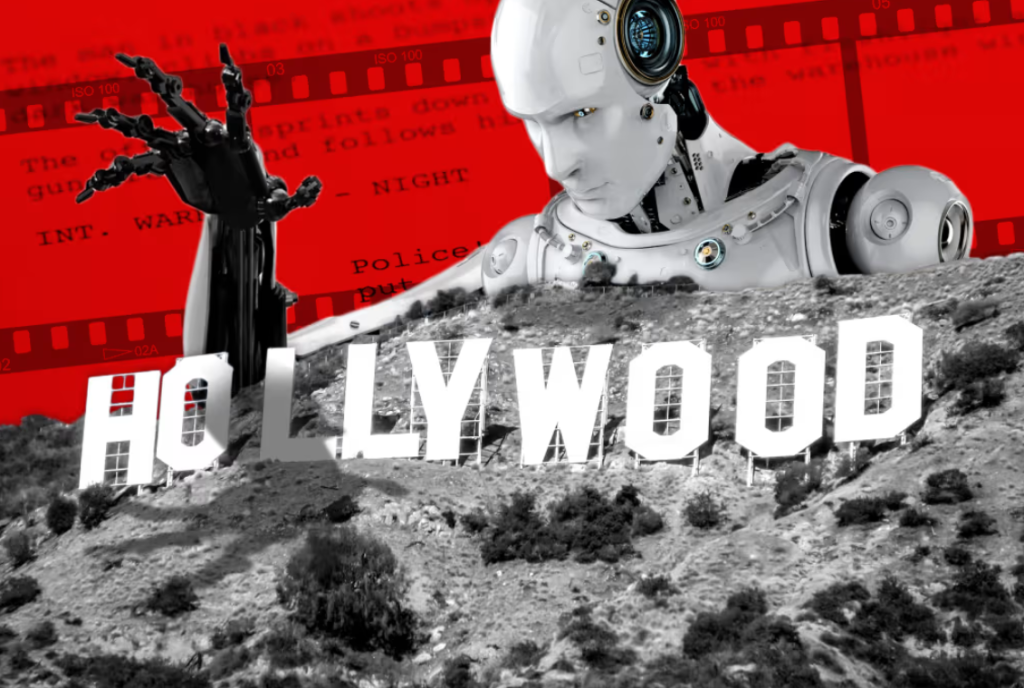What To Know
- Look, AI is transformative at its best, and both its abilities and the kind of product and experience it offers could lead to a world where there are no need for studios at all, for production and for content consumption, meaning that a large number of professions would become obsolete.
- The Berggruen Institute is currently situated in Los Angeles and thus it plans to influence the entertainment industry to become involved in an important effort to set the conditions for a meta-narrative that informs the population.
- Eric Schmidt, former Google CEO, also observed that AI capabilities are actually growing at a very fast pace and there may emerge a possibility much like in the Matrix series where one might need to pull the plug out since the AIs have a way of communicating amongst themselves.
What we say and illustrate determines human behaviours, and Hollywood has not left this aorry uninsured. When people are immersed in technology daily or when people have synthetic biology, AI, and climatic shifts, they must have the right story. The Berggruen Institute is currently situated in Los Angeles and thus it plans to influence the entertainment industry to become involved in an important effort to set the conditions for a meta-narrative that informs the population.
Another recent venture is Studio B that has been formed from scientists, technicians, historians, and philosophers and narrators. For instance, the next event will be a conversation between Lisa Joy, the creator of the upcoming series “Westworld,” and Fei Fei Li, an acclaimed AI scientist from Stanford.
During the show, a Reddit user asked questions to venture capitalist Reid Hoffman and Microsoft CTO Kevin Scott, accompanied by director J. J. Abrams. According to Hoffman, generative AI is, in fact, a way of boosting creativity on par with the boon of the Renaissance period. Scott also highlights the fact that despite the apparent sophistication of the great number of AI applications, the field is still in its infancy and one can expect vast progress when the technology reaches certain level. Look, AI is transformative at its best, and both its abilities and the kind of product and experience it offers could lead to a world where there are no need for studios at all, for production and for content consumption, meaning that a large number of professions would become obsolete.
However, Abrams has posited his conviction that human feedback will continue to be critical in the training of AIs and the generation of films. For the same, actor Ashton Kutcher also echoes this sentiment saying that Hollywood should come together to start being celebrated as co-creators of AI.
The idea here is that as advanced as AI has become in the entertainment front, it can be of significant assistance in other spheres of human functioning. Eric Schmidt, former Google CEO, also observed that AI capabilities are actually growing at a very fast pace and there may emerge a possibility much like in the Matrix series where one might need to pull the plug out since the AIs have a way of communicating amongst themselves. He underlines the threats of unsafe AI applications and such concepts of safety as Deep Mind’s Frontier Safety Framework, and the need to cooperate with the international community to prevent the weaponization of AI.
Schmidt also describes the difficulty of content controlling in China and perhaps the most important phenomenon of the algorithmic warfare. Unfortunately, he has a point that transparency and safety agreements in general have to be established in order to avoid worse-case scenarios.
Lastly, ranging from glamorous Hollywood to international organizations of global administration, the AI influence augments the human processes and stories. Indeed, with the advance towards more technology in business and investment the world over, the Fine Line between innovation and safety will determine the next technological frontier.



